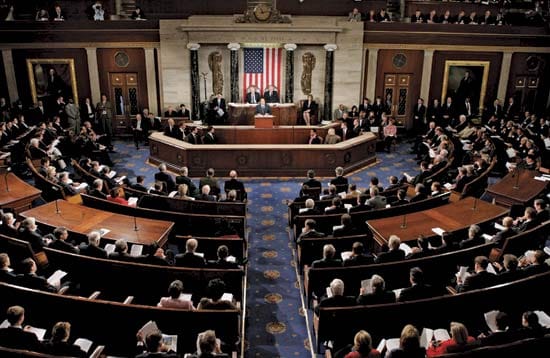Highway Funds, Student Loan Interest Rates and Political Theater


When Senate leaders said last week that they had finally reached a deal on freezing student loan rates for one more year, many wondered how it could be passed by both houses before July 1 when rates were set to double. Ultimately, it was determined that a negotiated version of a Senate highway bill passed back in March would act as the vehicle.
Linking the two disparate measures might have been the only option that ensured their timely passage, sure. But that's probably exactly what leadership in the House and Senate wanted. Here's why:
Usually, rider amendments are unpopular pieces of legislation or pork projects pleasing to a small set of constituents that get passed by piggybacking onto time-sensitive appropriation bills. They are supposed to fly in under the radar. In this instance, the opposite was the case. The attention received by the student loan rate “crisis” made it overshadow an even bigger issue. By tacking the student loan interest rate hike freeze onto a stalled transportation appropriations bill with a similar deadline in the 11th hour, Congress was able to sidestep widespread criticism over its short-term, deficit-fueled “fix” to the Highway Trust Fund problem.
What problem, you ask? Its much bigger than the $6 billion dollar one that was just averted by new college students.
To understand the bigger issue, you have to acquaint yourself with The Highway Trust Fund. Designed to pay for road maintenance and construction by way of user fees, the fund's principle source of revenue comes from a per-gallon tax on motor fuel. The current tax of 18.4 cents for gasoline and 24.4 cents for diesel hasn't changed since 1993. According to a report issued last year by the Carnegie Endowment for International Peace, the fund has lost one-third of its spending power when adjusted for inflation. Combined with rising construction costs, the advent of more fuel efficient cars and less Americans taking to the road because of a weak economy, the highway fund no longer pays for itself.
Neither Republicans nor Democrats want to be known as the party that instigated higher gas prices, especially in an election year. That's why lawmakers for the past 3 years haven't gotten serious about a long-term solution to highway project funding, shooting down several attempts to increase the gas tax (or to decrease spending for that matter) while approving temporary extensions to current law. And that is why last week Congress was able to agree on a two-year transportation funding bill involving almost $20 billion in deficit spending.
Since 2008, about $35 billion in general funds – essentially borrowed money by the U.S. Treasury – have been transferred to make up for shortfalls in the Highway Trust Fund. Meanwhile, individual states have been saddled with the burden of raising revenue to upkeep an ever-crumbling infrastructure. This arrangement has worked out well for Congress, a body that has been willing to shirk its responsibility to tax in-step with its spending habits for at least the last decade.
In a related piece of news, the pentagon plans on spending over $8 billion on a highway project in Pakistan. That money was “reprogrammed” from higher priority projects, seemingly on a whim, to help secure a deal with Pakistan that would reopen a major supply route into Afghanistan.


